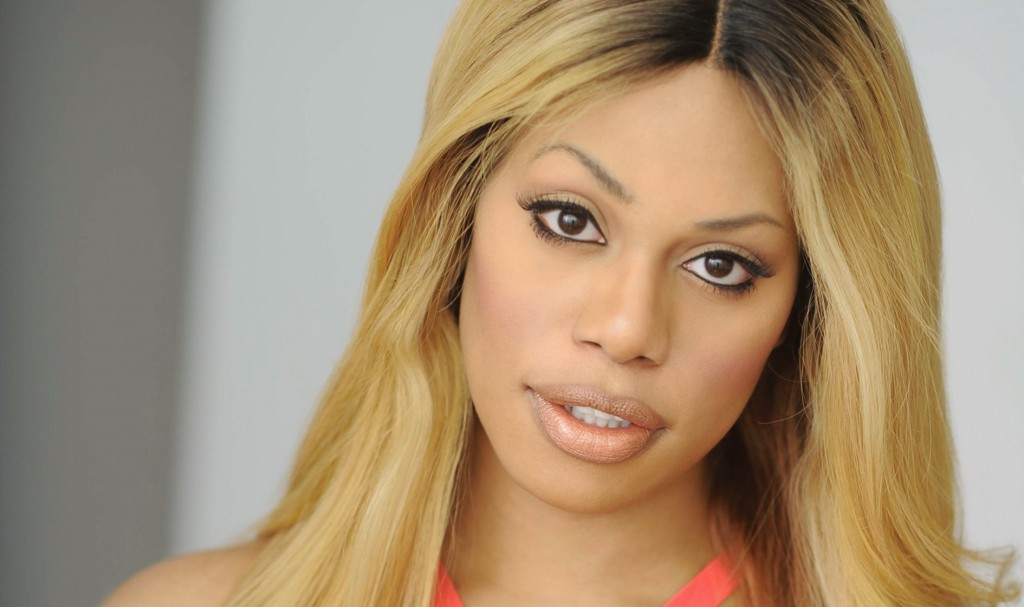
Hey, readers,
I have a request. It’s a pretty important one as it pertains to an estimated 700,000 people in the U.S. alone, a community of people who have spent much of their lives being called the wrong thing, done so with the intention to hurt or otherwise. The community of people I’m talking about is the one made up of transgender men and women, and we have reached the tipping point where we can no longer act dim-witted and in the dark about it. President Obama has addressed the transgender community in his State of the Union address (a first for any US President), and there are transgender celebrities on television and on the cover of Time Magazine. We need to stop being flippant with our words.
Laverne Cox, star of Netflix Original Orange is the New Black, has gone a long way towards bringing more attention to the transgender community, thanks to her Emmy-nominated role and her documentary The T Word. At last month’s Golden Globe awards, Amazon’s sublime Transparent won two of the night’s big prizes for Best Comedy Series and for Jeffrey Tambor’s wonderful depiction of a person going through transition. In recent years, Lana Wachowski has become the first transgender woman to direct a Hollywood movie with 2012’s Cloud Atlas and 2015’s Jupiter Ascending — both of which, just by the way, feature heavy trans themes, albeit disguised under layers of visual effects and mainstream Hollywood juggernauts like Halle Berry and Channing Tatum. Janet Mock, transgender rights activist, author of Redefining Realness and host of online talk show So Popular!, has long been calling on mainstream media to examine the way that it talks about transgender bodies and experiences. And with the news that former Olympian and reality television figure Bruce Jenner’s transition will be documented on TV, there is bound to be even more attention paid to the subject.
So, please, let’s smarten up. Follow your parents’ advice and treat other people the way you would like people to treat you. If you’re thinking that, hey, maybe they shouldn’t take things too seriously when you, for example, use the wrong pronoun, even accidentally, consider how frustrated you get when somebody spells your name incorrectly in an email. Or if you think they should be okay with people asking inappropriate and probing questions, just think about what your own reaction would be if a stranger began digging into your sex life simply because they were curious.
It’s always best to follow the leader. It’s important to use the pronoun and the name associated with a transgender man or woman’s correct self-identification. If you’re unsure what pronoun to use, then ask them. Nobody is more knowledgeable on someone’s identity than the person whose identity it actually is, and it makes it a lot easier and less awkward for all involved. If you make a mistake, quickly correct yourself and move on. While it should be fairly obvious that terms such as “it,” “she-male” and “tranny” are as offensive as racial epithets, please also don’t use words like “transvestite” — also derogatory, depending on whom you ask — or phrases like “cross-dresser” and “drag queen.” You’ll only make yourself look foolish by assuming that one community of people is the same as another when they’re not. Likewise, don’t fall into the same hole that Katie Couric did on national TV when she referred to transgender people as nouns. For example, Peter is not a transgender, he is a transgender man.
Also, it’s important to remember that gender and sexuality are two completely different things. A transgender woman isn’t necessarily a lesbian, just like how a non-transgender person isn’t necessarily heterosexual. There are all sorts of sexual orientations, and a transgender person may be sexually attracted to women, men, or both. Furthermore, just because somebody no longer identifies as the gender with which they were assigned at birth doesn’t mean they have had surgery. It’s important not to assume. Plenty of transgender men and women live the lives they want to without ever having sex reassignment surgery (not a “sex change operation”). In fact, the Gay and Lesbian Alliance Against Defamation (you know them as GLAAD) even warns people in their media reference guide to “avoid overemphasizing the role of surgeries in the transition process.” As Laverne Cox has said, there is a preoccupation with the idea of transgender people and surgery, which is just one facet of their lives — one that might not necessarily even factor in for many transgender people.
It can feel like a lot to wrap your head around, but it really shouldn’t be all that big of a deal to get over any wrongheaded, Old-World perceptions of “normality” and let people be their own individual selves. With just a bit of respect, it doesn’t take much to stop putting negativity out into the world and start being an ally. Every person in the world, transgender or otherwise, deserves decency and respect. Let people be who they want to be. Go ahead and do some extra research if you need to — it truly doesn’t take very long to educate your vernacular. Don’t be that person in 2015 who still thinks small.
Thank you.

























